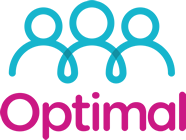A nation rejoiced this month as tens of thousands of pubs, bars and restaurants reopened their doors to serve patrons old and new in outdoor settings UK-wide. From May 17th we will see the majority of the industry opened up and getting back to trading.
Of course, it’s not just those of us who’ve missed frequenting our ‘local’ or favourite eatery cracking open a bottle or two in celebration. No one is more pleased than the countless business owners forced to cease trading on January 5 when the most recent lockdown came into force, and that’s on top of the many months they’d had to shut up shop during the previous year.
Unfortunately, with so many business closures – temporary and permanent – across the hospitality sector, many people have found themselves unemployed as a result. While some have since found alternative jobs in other industries, likely there are plenty champing at the bit to return to the work they know and love this week. And hospitality business owners can’t wait to have them back, on hand to serve a nation that is extremely hungry and thirsty if the number of bookings to leading apps such as TheFork are anything to go by.
It begs the question, is the hospitality industry ready to return to work? While business owners have had several months to prepare for the grand reopening, this doesn’t guarantee they have all of their paperwork in order ready for the latest influx in workers. And with a legal ruling now in play to ensure all employees have the same rights to written terms regardless of any contract, their role type or sector, it’s imperative managers are up to speed on workers’ rights and the hiring process.
What is the right to written terms?
Passed into law on 6th April 2020, the Written Statement of Employment Particulars ensures every person employed in the UK has a document to outline their key particulars such as hours of work and pay rate. This was done to make sure employees are treated fairly, even those with no formal employment contract in place.
Since the hospitality sector has a high percentage of workers deemed as casual – that being, with no formal contract in place – anyone working in HR or tasked with hiring needs to become familiar with the legislation that has been in effect now for the past year.
While not the same as an employment contract, some of the information within a contract may also be found within a written terms document.
What information is included in a written terms document?
There are several key components to a written terms document, including:
- Name and address of the employee as well as their job title, place of work (including an address), their key responsibilities and start date
- Number of hours the employee is expected to work and how often
- The period of notice required by the employee and for fixed-term contracts, clear details of the contract start and end dates
- Pay and entitlements such as the number of days’ holiday permitted and rate of holiday pay, number of sick days and sickness pay, and any other entitlements such as childcare vouchers, a company pension or car allowance
What other documents are mandatory with a new hire?
Also deemed as best practice, directing new hires toward any policies or rules on how a company operates and what is expected of them as an employee – such as a code of conduct – or training manuals necessary to perform their role.
This is provided to an employee on or before their first day of work. Anyone who began their job before the legislation being introduced last April, and want to receive written terms, can request this be provided by their employer (who is obliged to do so within 1 month of receiving the request).
Written terms can also be requested in retrospect of leaving employment, so long as an employee asks for this document within three months of their leaving the role.
Remember that this legislation applies to all industry sectors and not just hospitality.
In need of some HR advice or need some help with Written Terms? Wherever you are in the UK, you can arrange a chat with one of our friendly professional HR advisors at any time. You can also see more of what we do on our website HR Support
Call us on 030 0881857 or email enquiries@optimal-hr.co.uk
We’re also on Facebook, Twitter, Instagram and Linked In!



